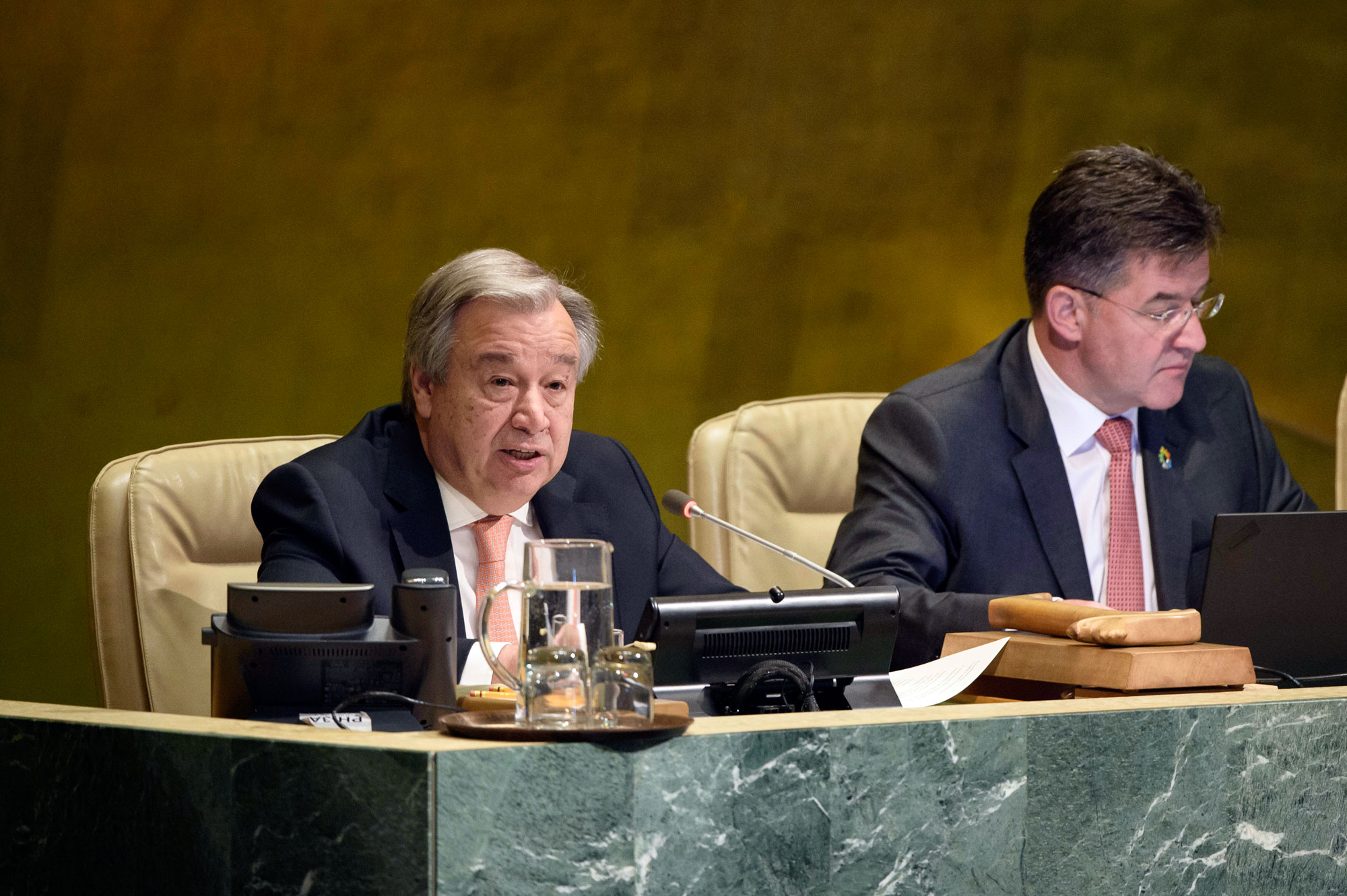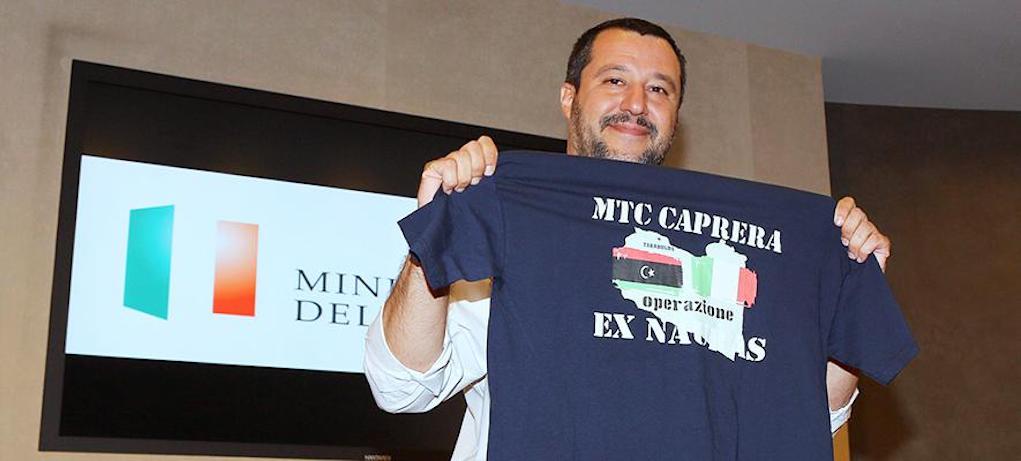Today during a United Nations press briefing, La Voce asked the United Nations Deputy Spokesman for the Secretary-General Farhan Haq about Italy’s Interior Minister Matteo Salvini’s proposal to create migrant reception centers in Libya’s southern region. Salvini made the proposal while he was visiting Libya, and was met by hostility from Libyan leaders. They asserted that the nation refuses to create the migrants camps if they are run by foreign personnel. Still, Salvini plans to propose the plan during a European Union meeting on Thursday.
In response to La Voce’s question about the U.N.’s position on the matter, the spokesperson responded in general terms: “We don’t have a specific comment on issues having to do with agreements between Italy and Libya. Our point of principle is that all refugees deserve to have their claims heard, so wherever they are and whoever is stopping them, they need to be apprised and accorded with their due process rights, and that goes for every country dealing with them.”
La Voce also asked Mr. Faq about Italy’s blocking of ports to NGO’s rescuing migrants and refugees at sea, to which he remarked: “[Regarding NGO’s and their access to Italy] that is an issue for the Italian government, but again what we’re urging is a solution where the countries throughout Europe will respect the inherent dignity and rights of all migrants and refugees.”
Salvini’s action have created a deja-vu moment from when Italy’s prior government was trying to keep Libyan migrants within their borders. When this was occurring last year, La Voce had asked Secretary-General António Guterres about his stance on the issue, to which he responded that any country would not be respecting international refugee law by creating agreements with a country like Libya, who is not able to retain its refugees.

This rhetoric echoed today during the Secretary-General’s speech to the General Assembly on the responsibility to protect. Guterres highlighted that the primary responsibility for protecting people rests with States, while also the international community has a responsibility to support the states in these efforts. The responsibility to protect principle developed at the 2005 World Summit after the world witnessed the genocides of Rwanda and Srebrenica. The principle is agreed to take collective action to protect people against genocide, war crimes, ethnic cleansing, and crimes against humanity.
The responsibility to protect principle achieved its highlight when the U.N. intervened in the conflict in Libya to overthrow Colonel Muammar Al-Qadhafi. However, ever since Libya has been plagued with more conflict. Today there was a Security Council meeting to discuss the unrest of the Middle East and North Africa. Secretary-General Guterres spoke during the meeting, stressing in his speech the need to end the conflict period in Libya. He remarked: “Political success in Libya will also hopefully allow the country to play its role in addressing the dramatic plight of migrants and refugees who have been suffering so much in attempting to cross the Mediterranean.”
Additionally, Italy asked to deliver a statement on Libya during the Security Council Open Debate. The Italian Representative stated: “Italy has been largely alone, together with Libya, in bearing the burden of these flows and saving countless lives at sea… Advancing the collective fight against traffickers also requires working together to strengthen the capacity of Governments in countries of origin and transit to control their territory and borders. The UN system also has a key role to play here. We have been consistently working in partnership with UNHCR and IOM to enhance their role on the ground, to ensure protection and direct assistance to migrants and refugees, to improve conditions in the centers, and to increase assisted voluntary returns and resettlements.”
Here, Italy emphasizes the need for safer routes for migrants in transit. Yet, in a country full of conflict like Libya where not even its own citizens are safe, this request for migrants appears unrealistic.
If a U.N. principle like the responsibility to protect were extended to refugees, people facing extreme danger to their lives from being abandoned by their state would be safe. International interventions are needed in situations where people are in danger from their own states, and the responsibility to protection principle intervening to avoid genocide aims to do so. Yet when the principle is called for migrants and refugees, not only is there a lack of support from migrant states, but also no support from U.N. leadership.












